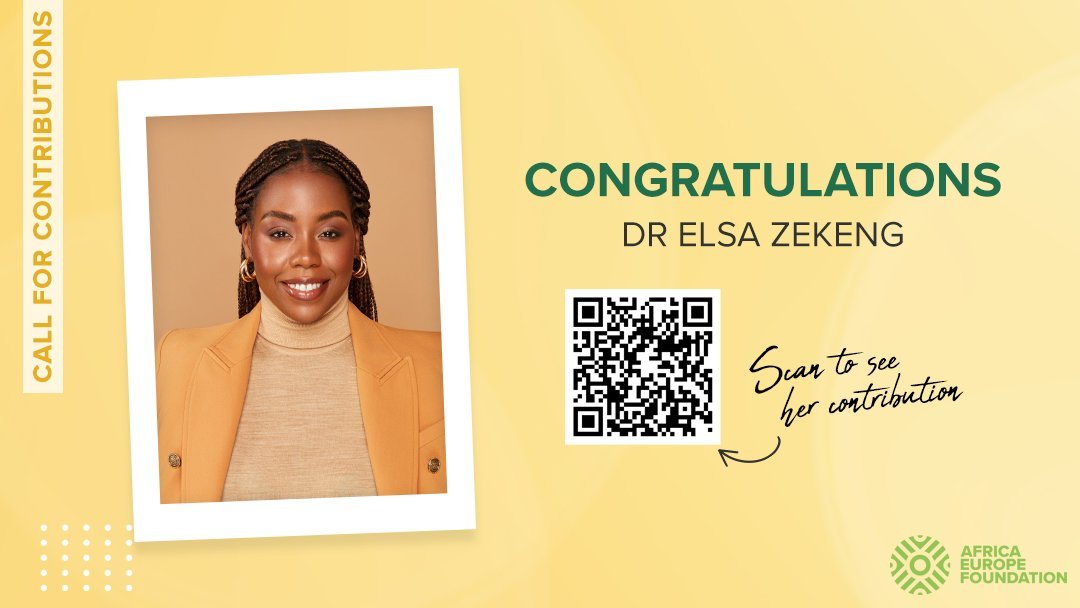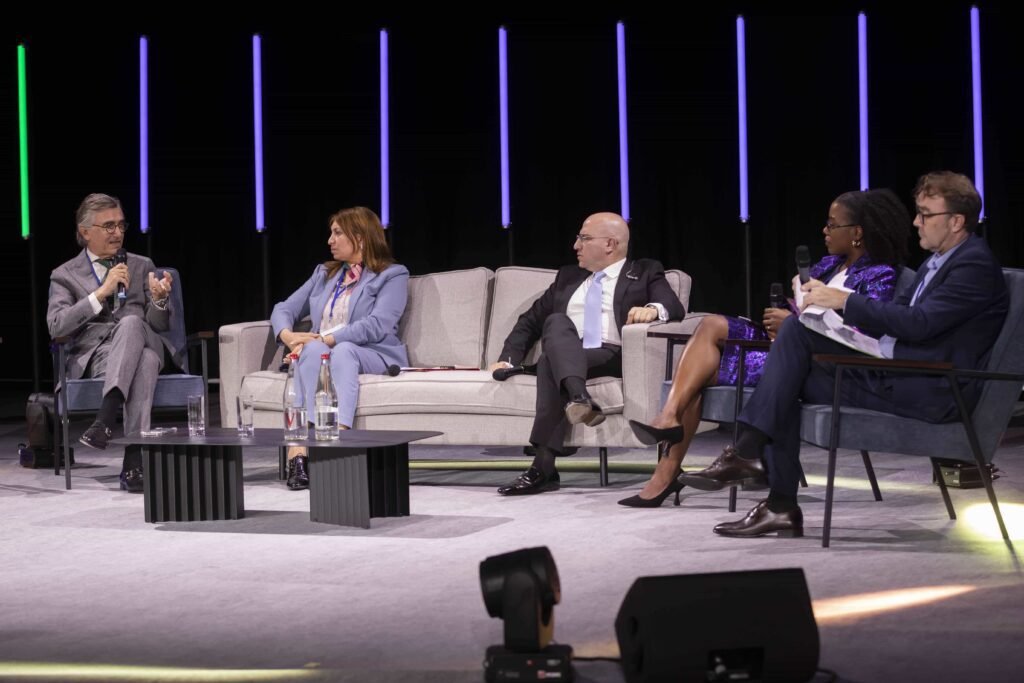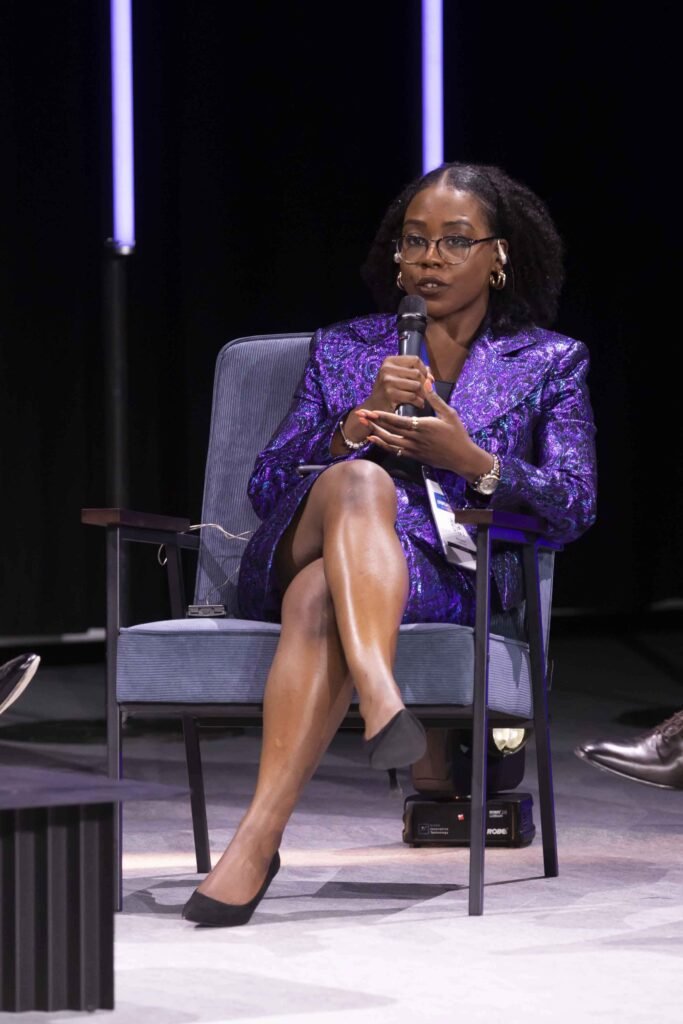Reaching 70% vaccination rate in the global south, would require creative, quick thinking and urgent action
The Africa-Europe Foundation announced a call for youth to contribute on specific topics about the relationship and types of partnerships between the continents Africa and Europe ahead of the AU-EU Summit. This contest was to engage youth interested in exchanges between the two continents and who want to work towards building a renewed partnership. Considering my background in Infectious Diseases and Global Health, I decided to speak on reaching vaccine access and equity in countries in Africa which currently have between 11-13% vaccination rates compared to 80%+ vaccination rates in the global North. My contribution focused on short term goals such as the urgency with which we as an international community need to reach 70% vaccination rate of the population in Africa and longer term goals such as creating Biotech ecosystems equipped for R&D. I won this call for contribution and joined the Africa-Europe Delegation for the AU-EU Summit albeit being virtual.
A couple of weeks after this, I was made aware of the “Forum Europe Afrique” where the Africa-Europe Foundation will be participating in partnership with La Tribune and La Tribune Afrique. It took place at the Palais du Pharo on March 17 in Marseille, France officially under the patronage of President Macron as a follow-up to the EU-AU Summit. Following my contribution, the AEF invited me to be a speaker on the panel on ‘Vaccination et Traitement pour Tous”. It was animated by Philippe Mabille – Directeur de la Redaction – La Tribune and speakers included:
Stéphane BANCEL : CEO and Chairman, Moderna Therapeutics (VIDEO) (could not attend), Philippe DOUSTE-BLAZY : President of UNITLIFE and former Minister of Health, Souad ABDERRAHIM : Mayor of Tunisia, Vice-President of the AIMF, Chrysoula Zacharopoulou : Member of the European Parliament (could not attend), Alan DONNELLY - President of the G20 Health & Development (zoom), Stavros NICOLAOU - Director of Strategic Business of Aspen Pharmacare and Elsa ZEKENG - Scientist, Entrepreneur, Activist
The panel debate started off with Philippe Mabille setting the stage and context for this debate followed by my contribution. I stated that when we talk about vaccines and treatments to which I’ll add diagnostics, I view them as public health goods/tools utilised in public health campaigns at higher rates during an epidemic or pandemic. I may go as far as saying in a pandemic, their level of importance and access to these is on the same level as basic human rights. If these are public health goods are essentially basic human rights, how did we get to a point where only a select few mostly in the global North have access to it. However, it is not a surprise as this has been seen before. During the HIV/AIDS pandemic, over a period of 10 years, over 12 million Africans died from HIV/AIDS out of lack of Access to Anti-retroviral drugs. Simultaneously, there was a drastic reduction in deaths from HIV/AIDS in the global North in countries like the USA.
When the biggest Ebola outbreak happened in West Africa between 2014-2016, there was a heavy reliance on support from the global North to increase access to these public health goods. Funding into Ebola and Marburg research over the period of about 10 years was about $1billion; of which almost 50% was given in 2014 & 2015. There was solidarity and collaboration with scientists deploying for knowledge transfer. A response, I was part of with the WHO and the European Mobile Laboratory (EMLab). As the COVID-19 pandemic ensued, we saw nationalism and individualism take front stage; where countries in the global south wanted to purchase these public health goods, but couldn’t. We saw and continue to see disputes of Intellectual Property, high cost, and exclusivity with access to public health goods where high-income countries received preference and access to these public health goods.
As we observe the patterns, this is not the first time this is happening. This cycle will be perpetuated if we don’t address the inequities in access to public health goods. Additionally, we need to create systems that can absorb epidemics and pandemics, move from a disease centred approach where during an epidemic and/or pandemic there is not a significant reduction in access to health care facilities and treatment for other diseases.
As we are a few days away from the fourth month of 2022, and review the target set by the WHO to reach 70% vaccination rate of the African population by mid 2022, the limited action to achieve this brings into question if this target is attainable. Taking into context the fact that some studies show the omicron variant could have been as a result of COVID19, staying and mutating in someone who was immunocompromised and likely unvaccinated. The implication of this is that the longer everyone isn’t vaccinated, the higher the chances of a new mutation and with globalisation, higher chances of another wave. It is therefore in everybody's best interest to meet this target. We need to think creatively, quickly and act urgently. We need to consider innovative Non-Traditional Partnerships with both old and new partners as well as create unconventional funding models.
As I stated on the panel (snippet below), some companies such as Moderna Therapeutics received more than $1 billion in funding for vaccine research funded by tax payers and then governments purchased these vaccines; essentially the business and shareholders have benefitted twice. Using public funds for research and development (including developing a vaccine), is a very common practice and one I totally support. However, I think it is only fair that in a situation such as a pandemic, the corporate takes responsibility to find innovative ways to support the public at large with access to these public health goods perhaps through Corporate Social Responsibility. Moderna stated it will not enforce COVID-19 patents while that decision is appreciated, without the knowledge transfer of vaccine development, this still delays mass production of vaccines. Afrigen Biologics in South Africa has been able to copy Moderna’s COVID vaccine with support from scientists in the international scientific community which will hopefully be on its way to clinical trial development and eventual manufacture. While this is promising, the time to delivery on these vaccines is still lengthy. Therefore, there is still the urgency to be met to vaccinate 70% of the population not just in African countries but also globally.


